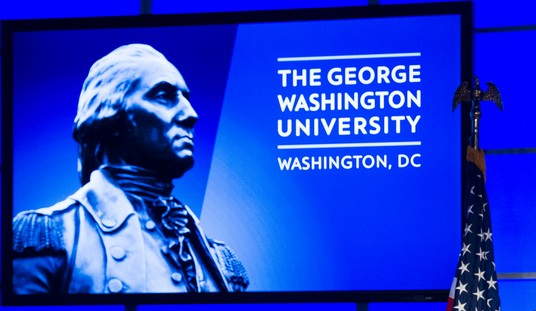Two articles, one from the Competitive Enterprise Institute and the other from Reason, illustrate what can happen when government tries to pick winners and losers. The unintended consequences spare neither Republican nor Democratic administrations. In the first case the Commonwealth of Massachusetts gave the film industry so much free cheese they ended up selling most of it to other industries.
When is a market not a real market? When it trades in fake goods — products or services that could not exist if government didn’t bring them into being. A case in point is transferable targeted tax credits, which state and local governments routinely offer to attract businesses. …
The Boston Globe reports:
At least 96 percent of the $265 million in tax credits used to attract movie and television productions to Massachusetts were sold by the film companies between 2006 and 2010, according to the state Department of Revenue.
The incentives are so generous – rebates of up to 25 percent of production costs in the state – that most film companies do not end up owing nearly enough in taxes to use the credits. So they sell them at a discount, fueling a booming industry for brokers, accountants, and savvy taxpayers.
Here’s how it works:
A production company that is awarded $10 million in tax credits might sell them to a broker for $8.7 million. The broker then sells the credits to a financial company that owes state incomes taxes for a bit more – say for $9 million, earning the broker a $300,000 profit. The financial firm can then claim the full $10 million in credits on its tax return, saving $1 million.
These credits would not exist if not for government favoritism toward certain industries, and film production is far being from the only industry that benefits from this targeted largess.
What a waste, you may say. Maybe the Republicans can do better. But the other story involves a Republican governor, Sonny Perdue, who added sugar on top of the ice cream and honey after that to attract ants to Georgia.
In 2006 the Korean car maker Kia decided to build a $1.2 billion plant in West Point, Georgia. To land the project, the state offered a $420 million incentive package that included free land (bought from the previous owners at about 2.5 times the market value), tax-funded employee training, and a new $30 million Interstate interchange. Altogether, the subsidies amounted to roughly $168,000 for each of the 2,500 jobs at the plant.
The story might sound outrageous. Actually, it’s typical of Southern corporate hospitality:
* After Hurricane Katrina destroyed CSX train tracks along the Mississippi coast, the state’s U.S. senators, Republicans Trent Lott and Thad Cochran, arranged the allocation of $200 million in federal money to rebuild the railway. Then CSX asked for another $750 million to move the tracks less than 10 miles north. Lott and Cochran attached that money to an emergency spending bill for military operations in Iraq and Afghanistan.
The justification for the gifts to CSX was “economic development,” plus the weak argument that moving the tracks a few miles would protect them from another hurricane. Critics, such as Sen. Tom Coburn (R-Okla.), charge that Cochran and Lott were carrying water for the developers and casino operators who now can build along the coastal land where the tracks originally ran.
Why does this bipartisan waste happen? The essential problem is that once there’s a warehouse sufficiently full of government cheese rats eventually find a way to gnaw on it. That’s what rats do. They can’t help themselves. Politicians are as a species, apparently addicted to making deals and it matters less than we think that the addict is Democrat or Republican. Addicts are fundamentally cut from the same cloth.
The problem of government has long occupied political writers. Thomas Paine, tried to think the dilemmas through and concluded that certain things were better left to arrangements by barter or the market than they were to government. Government’s would only make a mess of the economy. Its proper role, he argued, was to stand on guard to let people labor in peace. As he put it, “society is produced by our wants, and government by wickedness; the former promotes our happiness positively by uniting our affections, the latter negatively by restraining our vices.”
Paine suggested a thought experiment. Suppose you were stranded in a wilderness, which we may call for drama’s sake, Paine’s Island, just as the reality contestants on TV surival shows supposedly are; would your first act be to elect a President, Senator, Congressman, Governor? Or would you trade skills to ease the task of producing food? Paine argues that necessity would impel people to set to work with the minimum regulatory burden.
Let us suppose a small number of persons settled in some sequestered part of the earth … Four or five united would be able to raise a tolerable dwelling in the midst of a wilderness, but one man might labour out the common period of life without accomplishing any thing; when he had felled his timber he could not remove it, nor erect it after it was removed; hunger in the mean time would urge him from his work, and every different want call him a different way. Disease, nay even misfortune would be death, for though neither might be mortal, yet either would disable him from living, and reduce him to a state in which he might rather be said to perish than to die.
So they would work until their immediate needs were met. But inevitably, Paine argues, someone would emerge to say “you didn’t build that, someone else built that for you” and start welshing on the deals and buying allies with what he seized. Then a council would have to be called to settle things. Force would be employed in the Garden. Paradise will have ended and fallen state begun.
This … reciprocal blessing of which, would supersede, and render the obligations of law and government unnecessary while they remained perfectly just to each other; but as nothing but heaven is impregnable to vice, it will unavoidably happen, that … they will begin to relax in their duty and attachment to each other; and this remissness, will point out the necessity, of establishing some form of government to supply the defect of moral virtue …
Government, like dress, is the badge of lost innocence; the palaces of kings are built on the ruins of the bowers of paradise. For were the impulses of conscience clear, uniform, and irresistibly obeyed, man would need no other lawgiver; but that not being the case, he finds it necessary to surrender up a part of his property to furnish means for the protection of the rest; and this he is induced to do by the same prudence which in every other case advises him out of two evils to choose the least.
Paine’s famous words sum up his argument. “Society in every state is a blessing, but government even in its best state is but a necessary evil; in its worst state an intolerable one”.
It’s interesting to remark how far from Paine’s conception modern society has journeyed. Most men educated today are taught that the more government, the better. And if asked about its proper role many would readily say that its purpose was to supply more and more government cheese. Government is no longer a guardian of man against the vices of man. It’s the distributor of largesse, the picker of winners and losers.
This is what Western Europe has literally become, a continent of ceremonial regiments and armies of welfare workers. A British National Health Service proudly proclaims that it rials the Chinese People’s Liberation Army in size.
As to protecting the citizens of Fallen Paradise from serpents and enemies foreign and domestic, it has exited that business. Protection has now been outsourced to the United Nations or the international community. On the Island, efforts are moving to a world without nuclear weapons, one unencumbered by unproven missile defense systems or lumbered with advanced combat systems.
In place of society on Paine’s Island, you’d have the cheese and the cheese dolers. It would be interesting to ask government’s cheese dolers how they have fared these last four years.
President Barack Obama’s regulatory czar Cass Sunstein is resigning his position in the Obama administration, the White House announced on Friday …
Sunstein and Obama first met when they both taught at the University of Chicago Law School. Sunstein is viewed as a progressive number cruncher who was supposed to rejuvenate regulation to maximize benefit and minimize cost. Essentially, his role was to economically facilitate the Obama administration’s big government plans.
In a statement accompanying the announcement of Sunstein’s resignation, Obama said the man who was supposed to orchestrate his big government initiatives “has helped drive a series of historic accomplishments on behalf of the American people.”
Today things done on one’s behalf. The world has moved on from Paine’s Island. Get with the program.
http://www.youtube.com/watch?v=xokKrZJ1zcY
How to Publish on Amazon’s Kindle for $2.99
The Three Conjectures at Amazon Kindle for $1.99
Storming the Castle at Amazon Kindle for $3.99









Join the conversation as a VIP Member